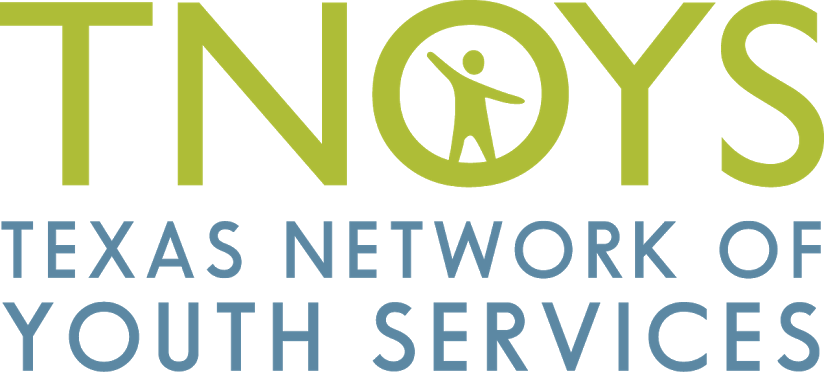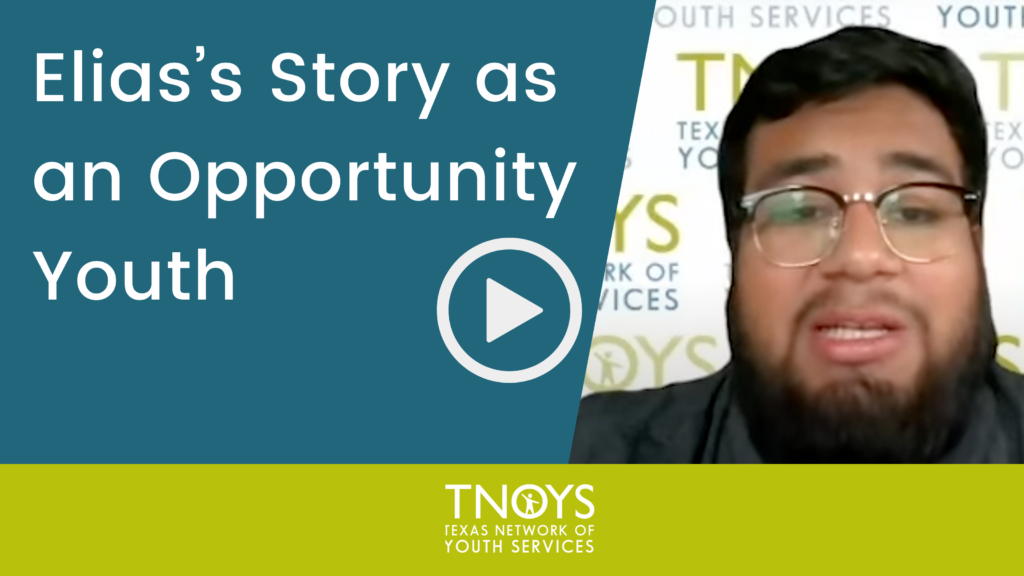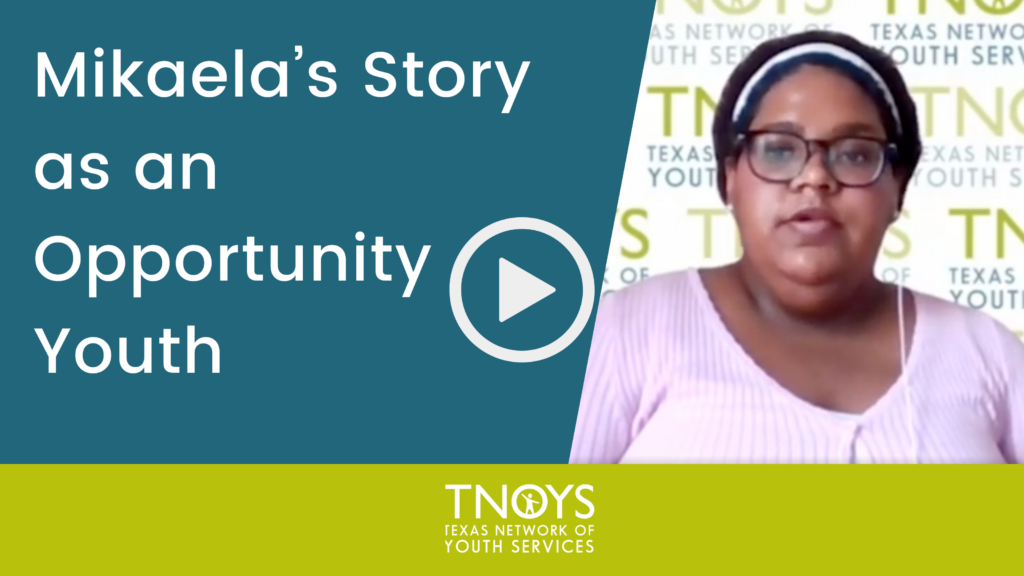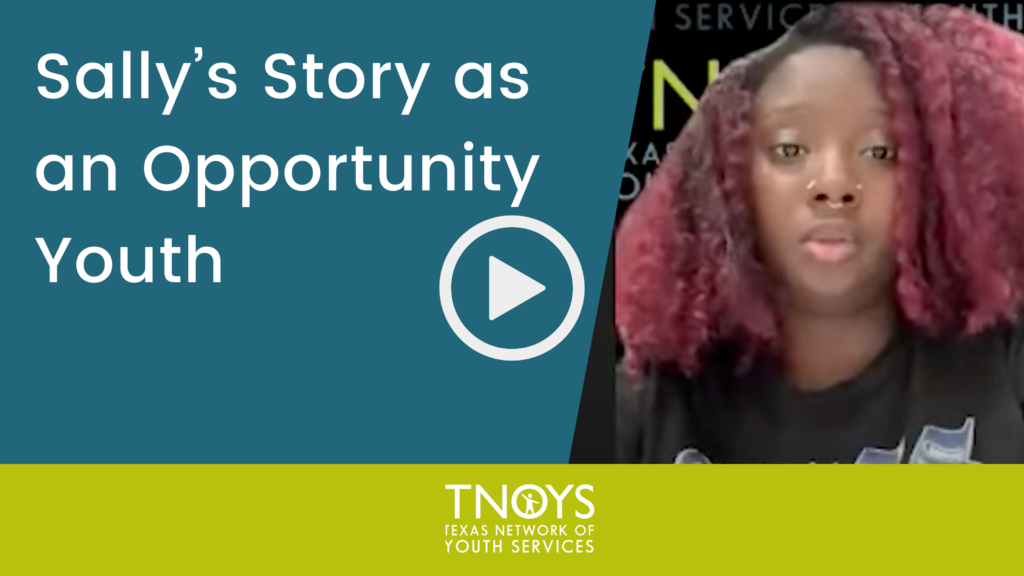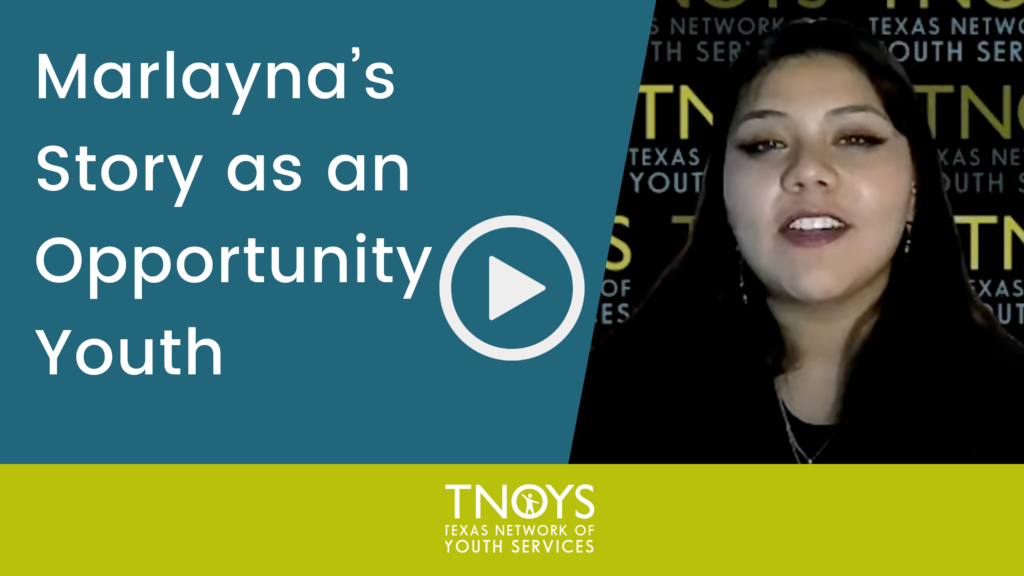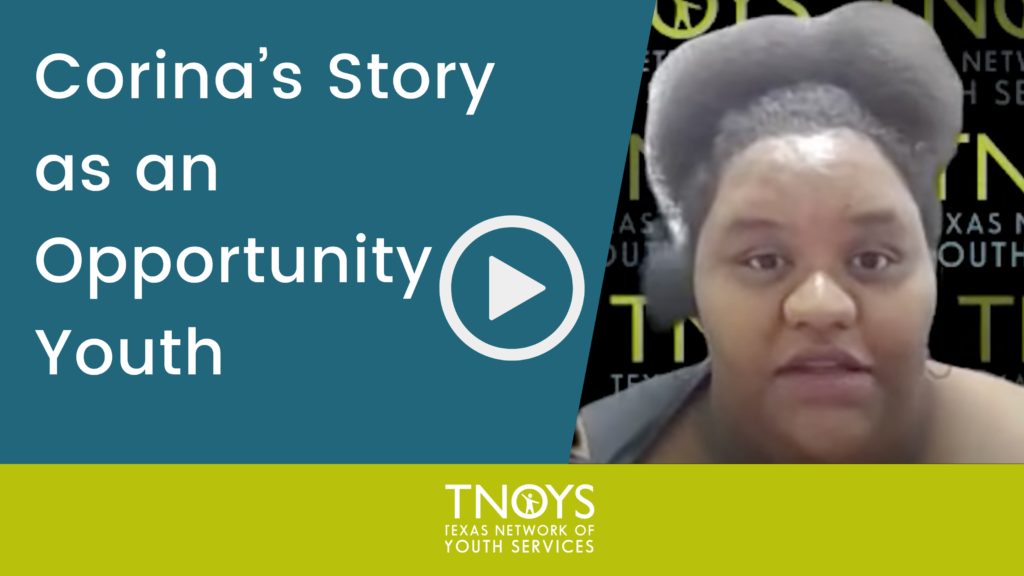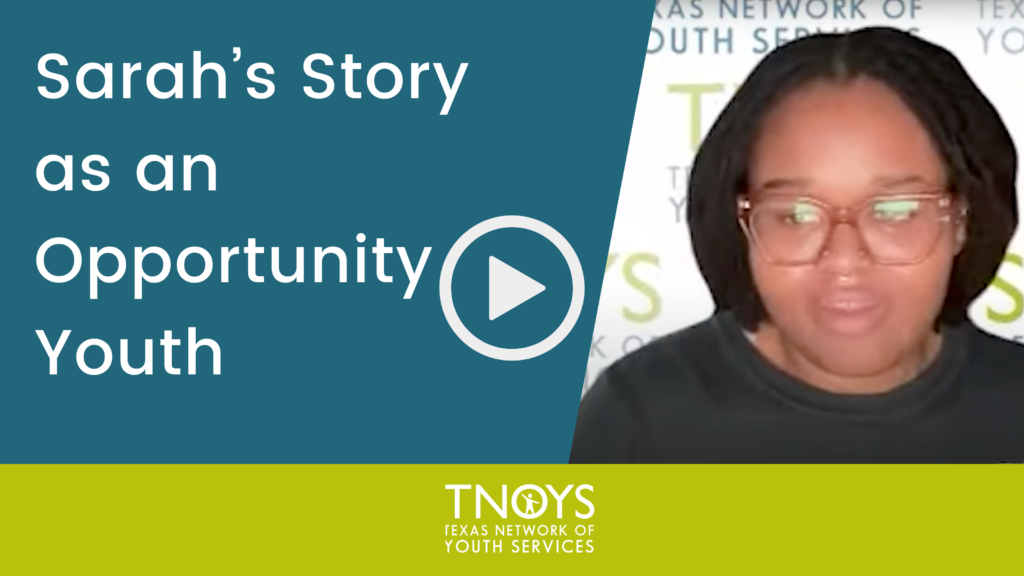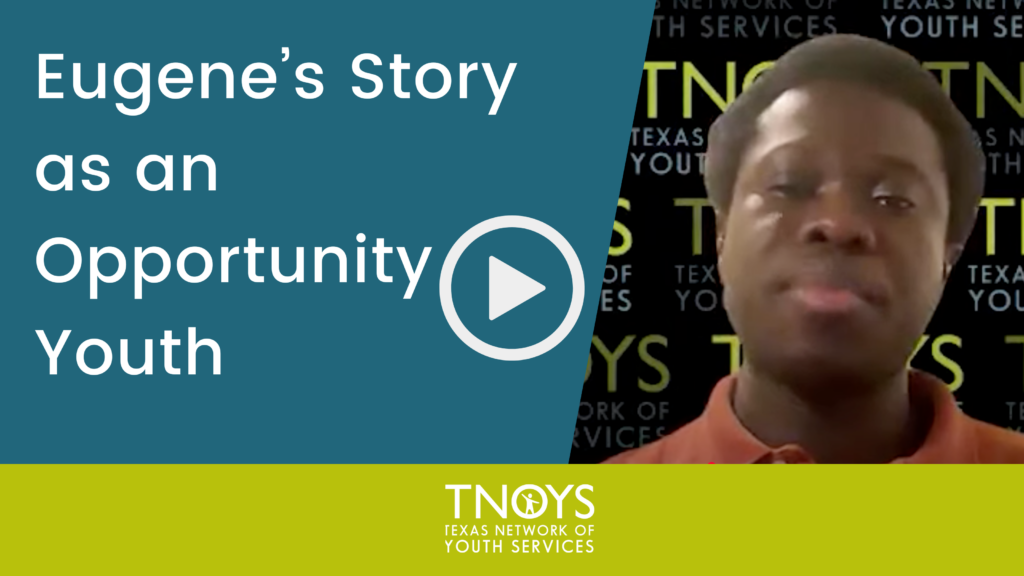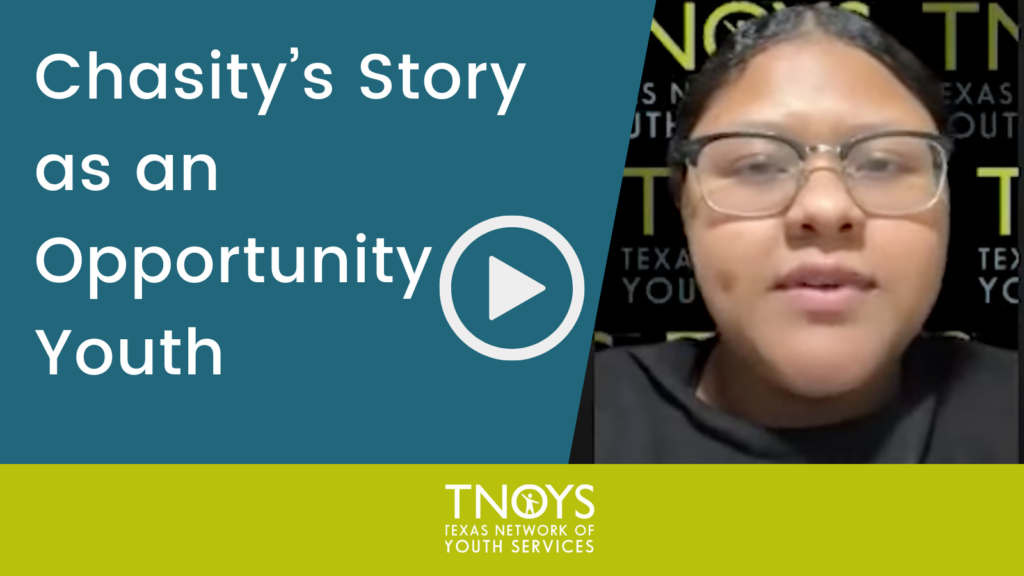Texas is home to an estimated 500,000 “Opportunity Youth and Young Adults” (OYYA), defined as young people aged 16–26 who are neither enrolled in school nor employed. While many OYYA have experienced systems involvement, unstable living conditions, and trauma, their experiences with disconnection are far from uniform. Each OYYA has a unique story that speaks to individual hopes, ambitions, and the supports and resources they need to reach their goals.
In 2024, TNOYS was proud to work with 11 such young people through our Texas Emerging Leaders Board (TELB), a leadership program for OYYA backed by the Aspen Institute Forum for Community Solutions (FCS). Throughout the year, TELB members partnered with TNOYS, FCS, and dozens of organizations to amplify the voices of OYYA and join in building local, statewide, and national solutions.
The TELB has shone a light on the unique stories of OYYA and identified numerous opportunities to build stronger pathways to education and careers for youth in vulnerable situations. Hear from this year’s TELB cohort about just a few of these stories, how adult allies can better serve OYYA, and their hopes for the future:
How Unmet Health and Behavioral Health Needs Can Disrupt Education
OYYA often face health and mental health challenges that, if unaddressed, can disrupt their education or employment. TELB members Mikaela and Elias shared how gaps in health support affected their high school journeys. Mikaela explained that inadequate mental health support led her to drop out after her freshman year. Similarly, Elias recounted how a medical emergency created a significant gap in his education, making it difficult to catch up.
Facing Gaps in Support After Aging Out of Foster Care
Often, young people age out of foster care and into adulthood without the resources and support they need to pursue an education or enter the workforce. Sally, now a doctoral student, described the transition out of foster care as a “hard drop” into independence, and she struggled to navigate and understand the resources available for her education journey. Similarly, Marlayna shared how a lack of emotional and financial support created instability after she aged out of foster care. She emphasized the importance of ensuring that YYA are aware of vital resources like tuition-fee waivers and transitional living programs.
The Need for Trauma-Informed, Flexible School or Employment
When OYYA do enroll in school or enter the workplace, many lack the resources or support systems they need to be successful. Sarah, a college student who aged out of foster care, explained how hard it is to prioritize school while she is also juggling multiple part-time jobs to support herself. Corina explains how she began a new job while experiencing homelessness. Unfortunately, a lack of job flexibility and limited transportation caused her to ultimately lose employment.
Experiencing Homelessness or Housing Instability in Higher Education
Many TELB members discussed how homelessness or housing instability— as well as limited housing support— impacted their educational goals. While experiencing homelessness as a college student, Eugene encountered cumbersome and confusing support systems that left him without assistance. Similarly, Chastity explains that a lack of housing support while in college left her without a consistent place to sleep, “impacting {her} mental health drastically”.
How OYYA Can Join TNOYS’ TELB
TNOYS is incredibly proud of our 2024 TELB members and we can’t wait to see what’s next in store for them!
Do you know a young adult who has experienced disconnection from school or work, and wishes to be part of positive systems-change? Applications for the 2025 TELB cohort are open until December 31, 2024. Members of this year-long program work for a minimum of 10 hours and a maximum of 15 hours per month, earning $20 per hour. Learn more and apply here.
